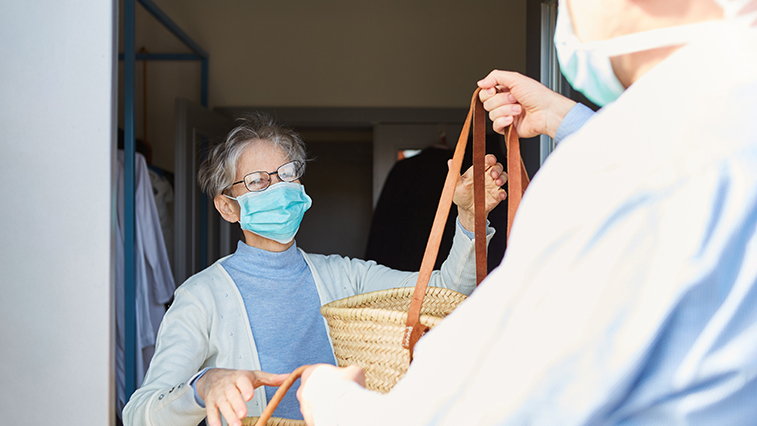COVID-19 and what this means for the elderly
May 14, 2020
Our Senior Citizens
With the sudden spread of COVID-19, the entire world has been on full lockdown. It’s not an exaggeration to say that everyone has been affected by it one way or another. Although we’ve all been affected by the virus, it should be noted that one of the groups most affected by it are those in the population that are older, specifically those who are older than 65. The elders of our nation are the most at risk for this virus, and therefore the most restricted during these times.
The CDC released information regarding the specifics of what was known about COVID-19 and about who would be the most susceptible to contracting it. The disease itself is quite infectious and anyone who comes into contact with it can get infected. Its effects on the body can be typical of the flu and there’s good reason to believe that if one gets infected they will recover. Despite the recovery rate, the disease can still be deadly, especially to people over the age of 65.
People over the age of 65 have a real danger of suffering from the severe symptoms of the virus. They’re the ones who are the most at risk since their immune systems are weaker than the immune systems of a person of a younger age. They’ve also most likely have suffered from previous ailments, or have existing chronic illnesses. For this reason, elders are more likely to perish after contracting the disease.
Senior citizens make up around 16 percent of our nation’s population. That’s around 52.5 million people out of the U.S. ‘s 328.2 million people. That means we, as a country, have to keep in mind of those citizens who are the most susceptible to this virus. Just keeping your distance from them can be a matter of life and death.
Since the disease may be fatal to elders, they must be much more cautious. They’re under stricter limitations during this quarantine. Usually, this part of the population tends to be living in nursing homes or alone (since children tend to move out once they become adults). Since this is the case, it must be a lot harder for them to receive the necessary care and attention they may need. Grocery shopping, for example, for necessities can prove difficult.
Luckily, the enactment of certain programs and actions exist to facilitate the current situation and cater to the needs of this community.
In some stores, they have set aside certain hours for senior citizens to shop exclusively. In this way, seniors can go out of their homes and obtain the necessities, with a little less risk of exposure. If one wants even less exposure, one can alternatively use store pick-up or delivery; this is made possible by either the store or delivery services like Postmates.
If an elder cannot drive and has no access to the store, besides using a delivery service, there are some counties offering programs that cater to their needs. Some programs deliver free meals to seniors if they find that they are unable to provide for themselves. This can especially be useful to seniors who don’t have family that can help them, or don’t have the means to use a delivery service.
It’s important to think about our elders during these times, they’re an important part of our communities and families. Remember to think about your grandparents or other family members and keep yourself at a reasonable distance. Drive-by their house and greet them from outside. In the end, these precautions are for their well-being and safety.
